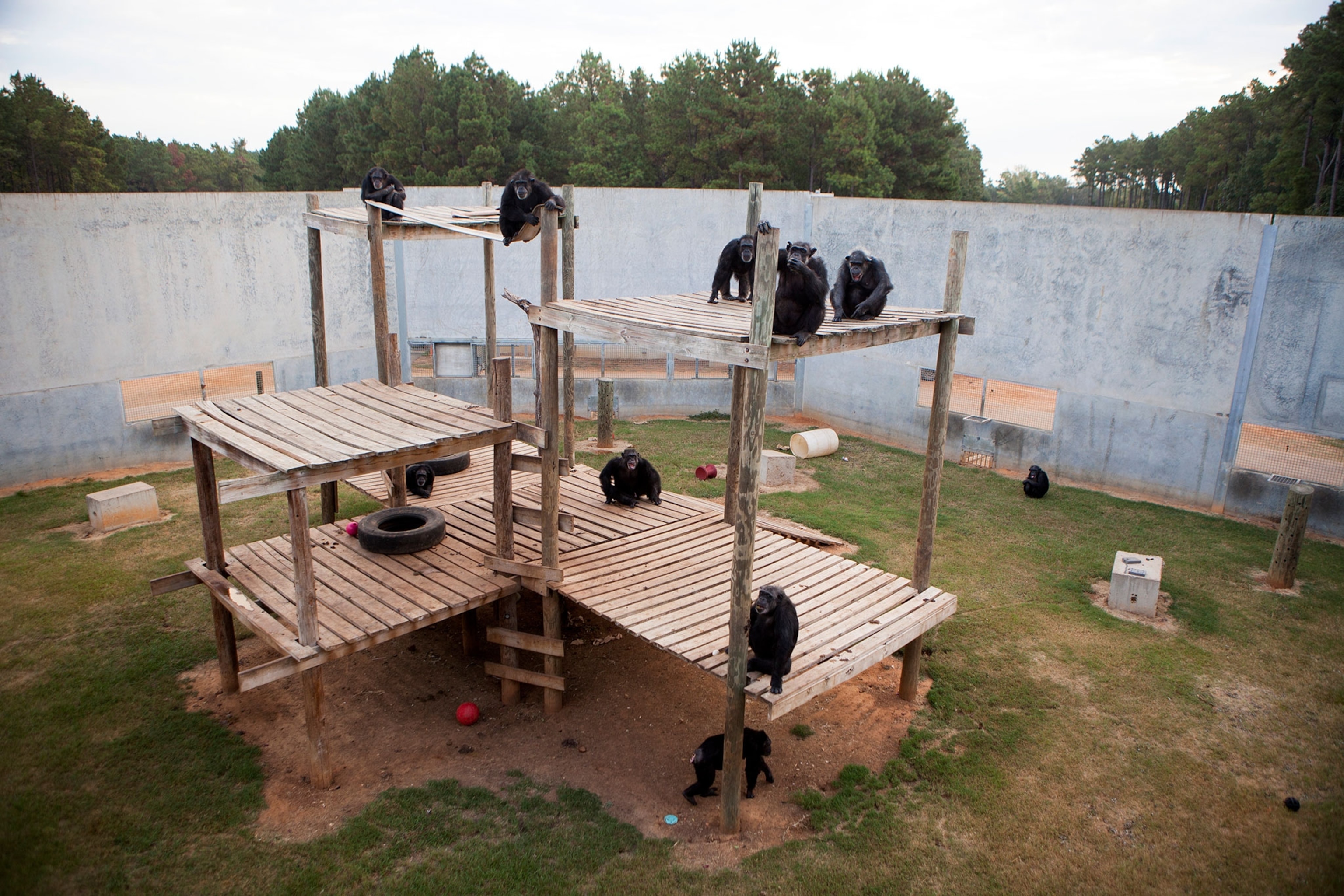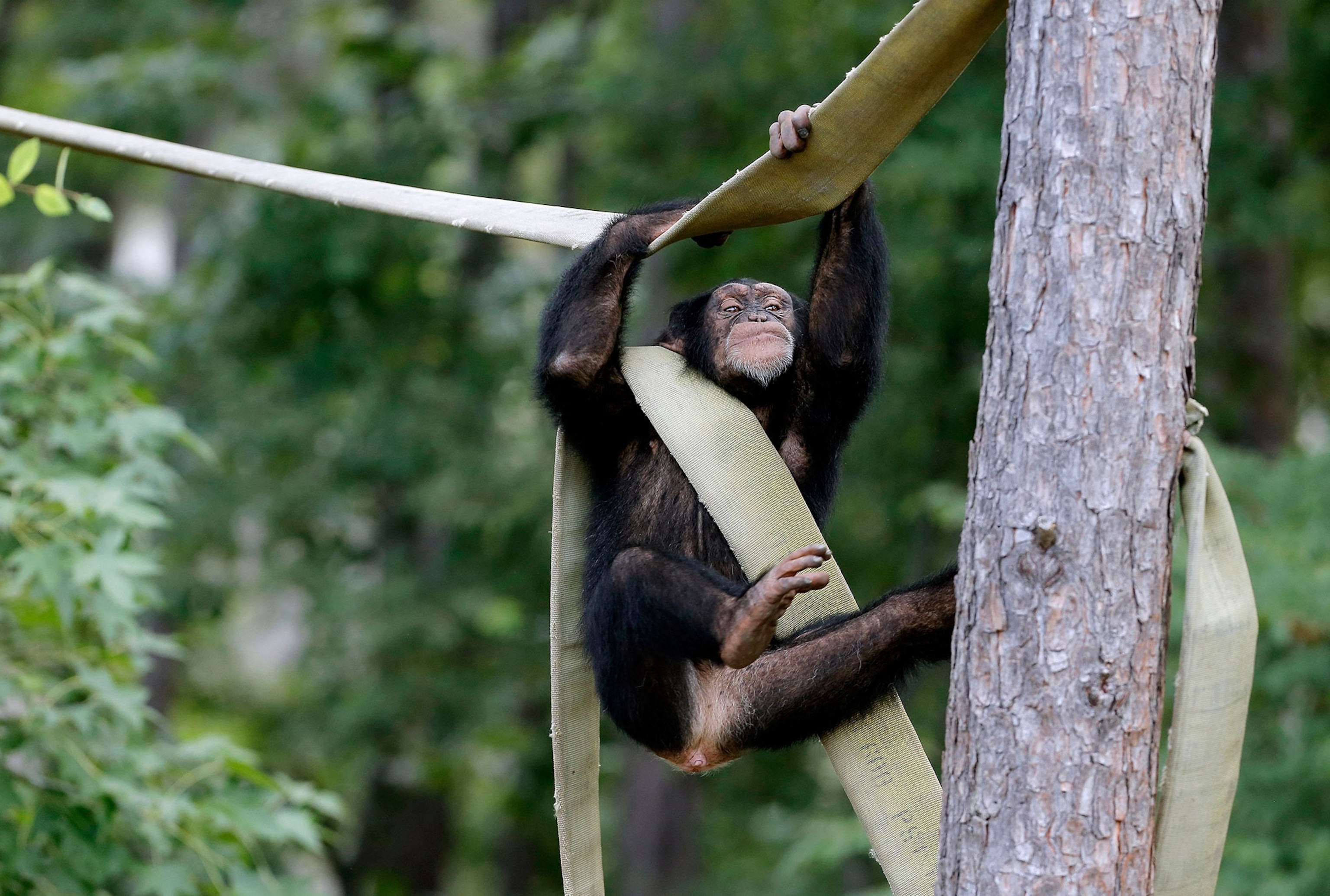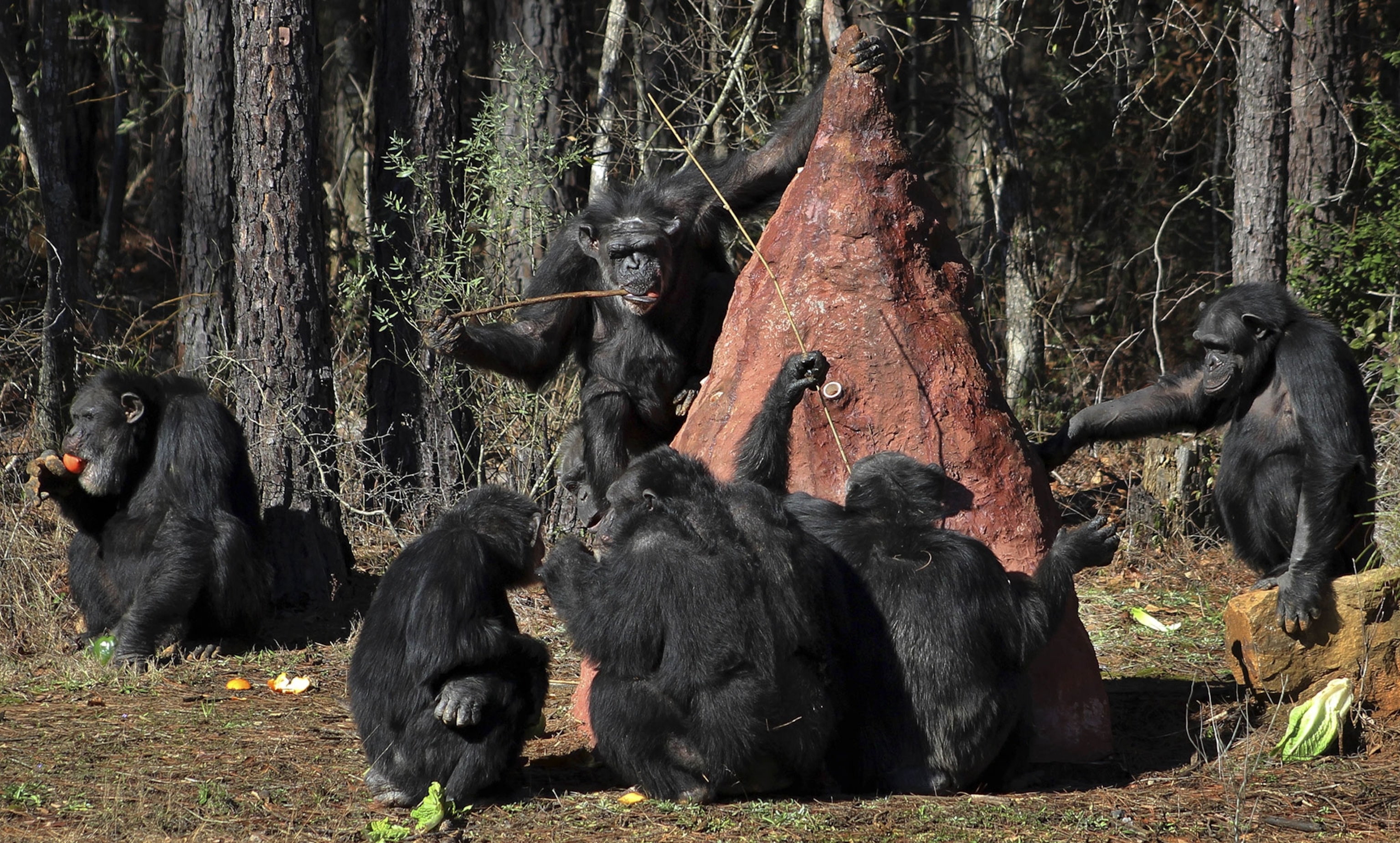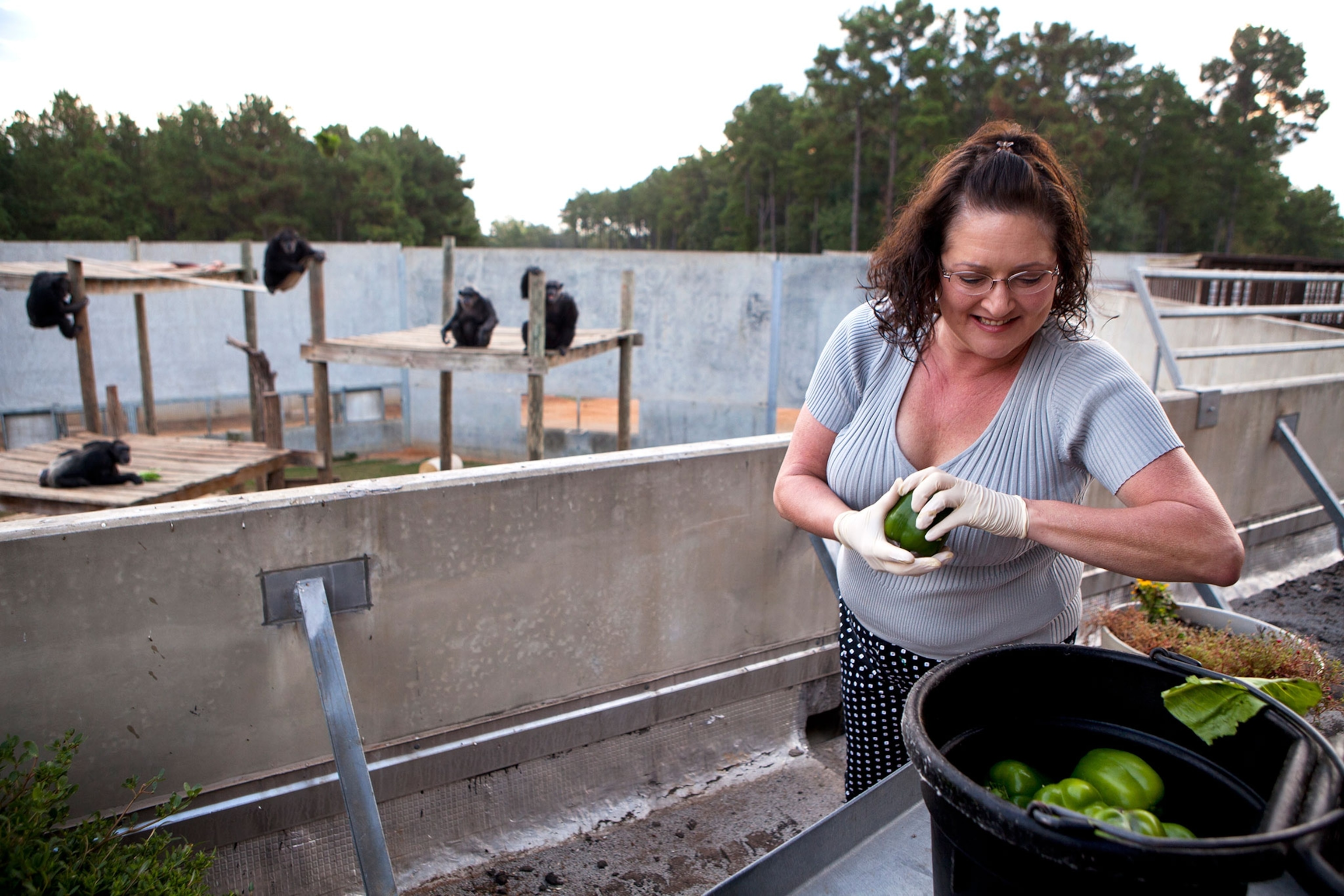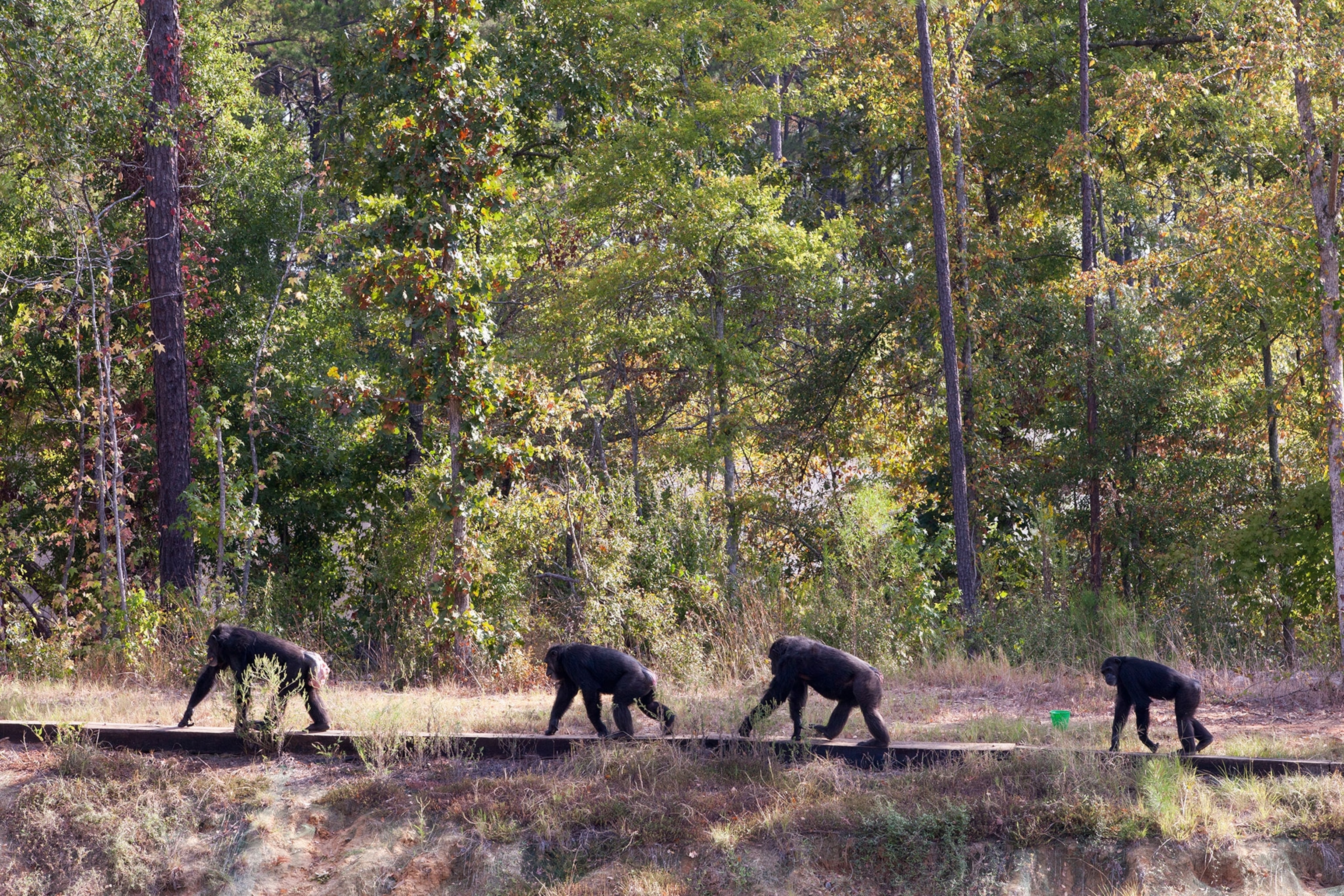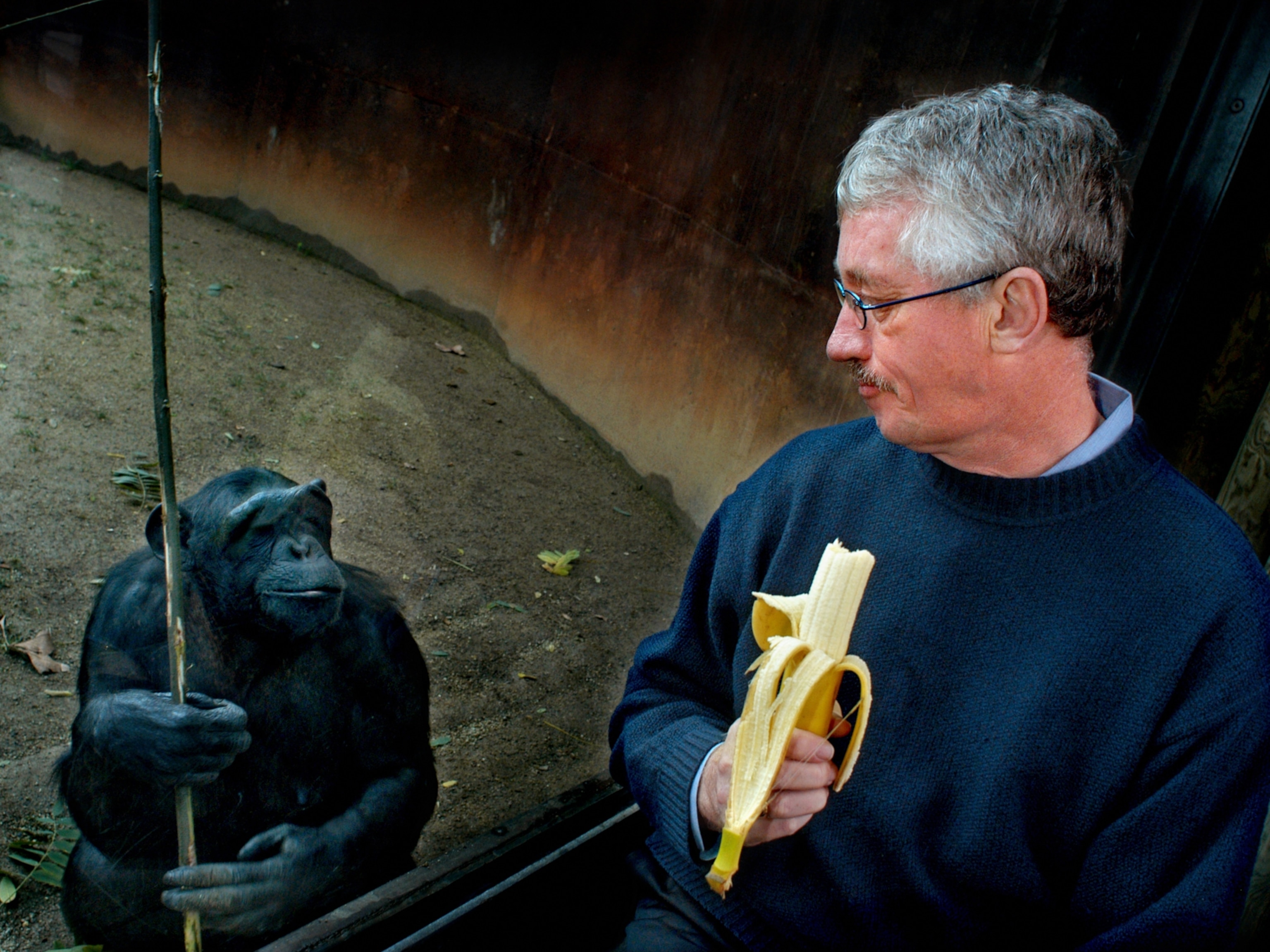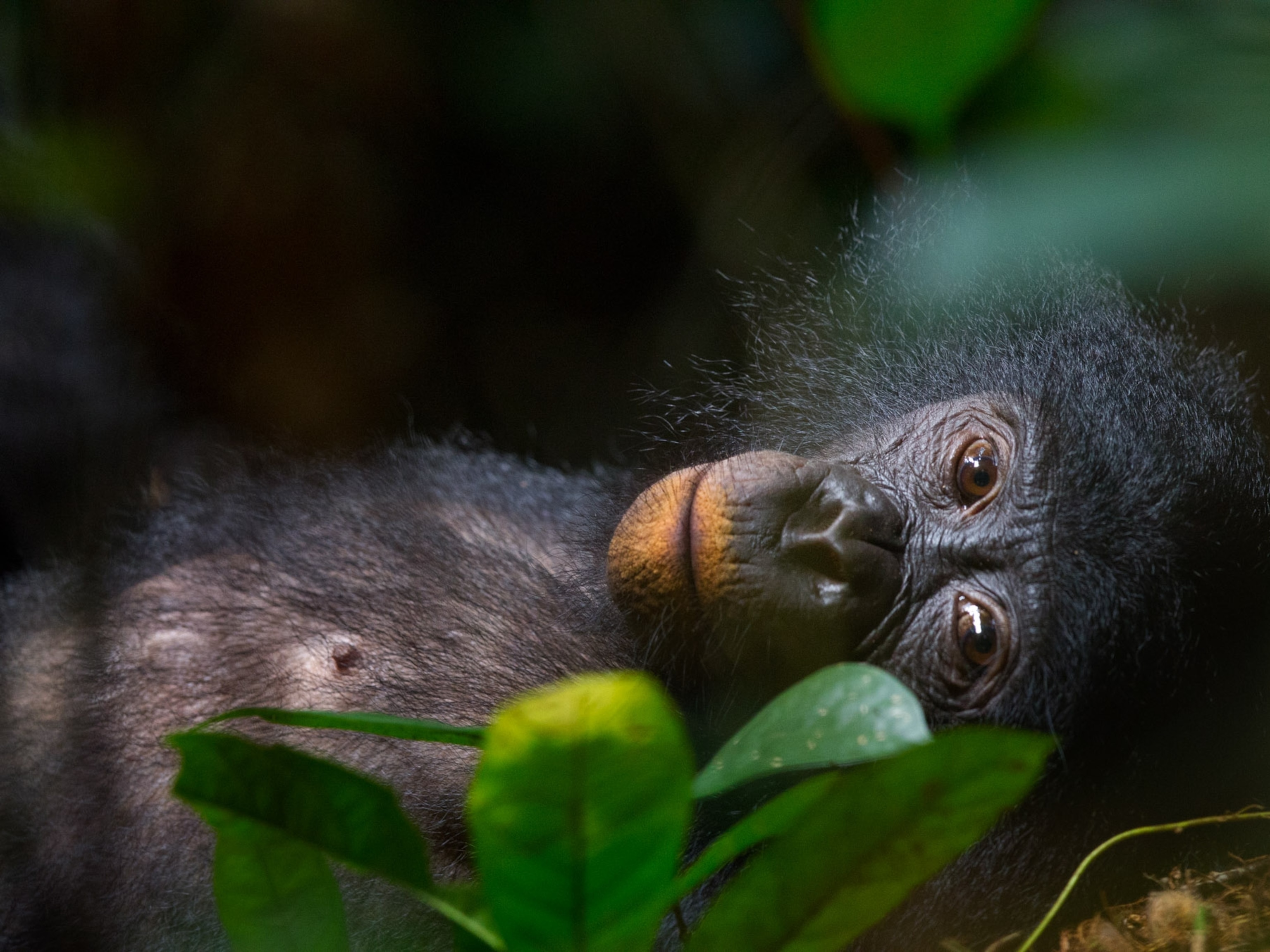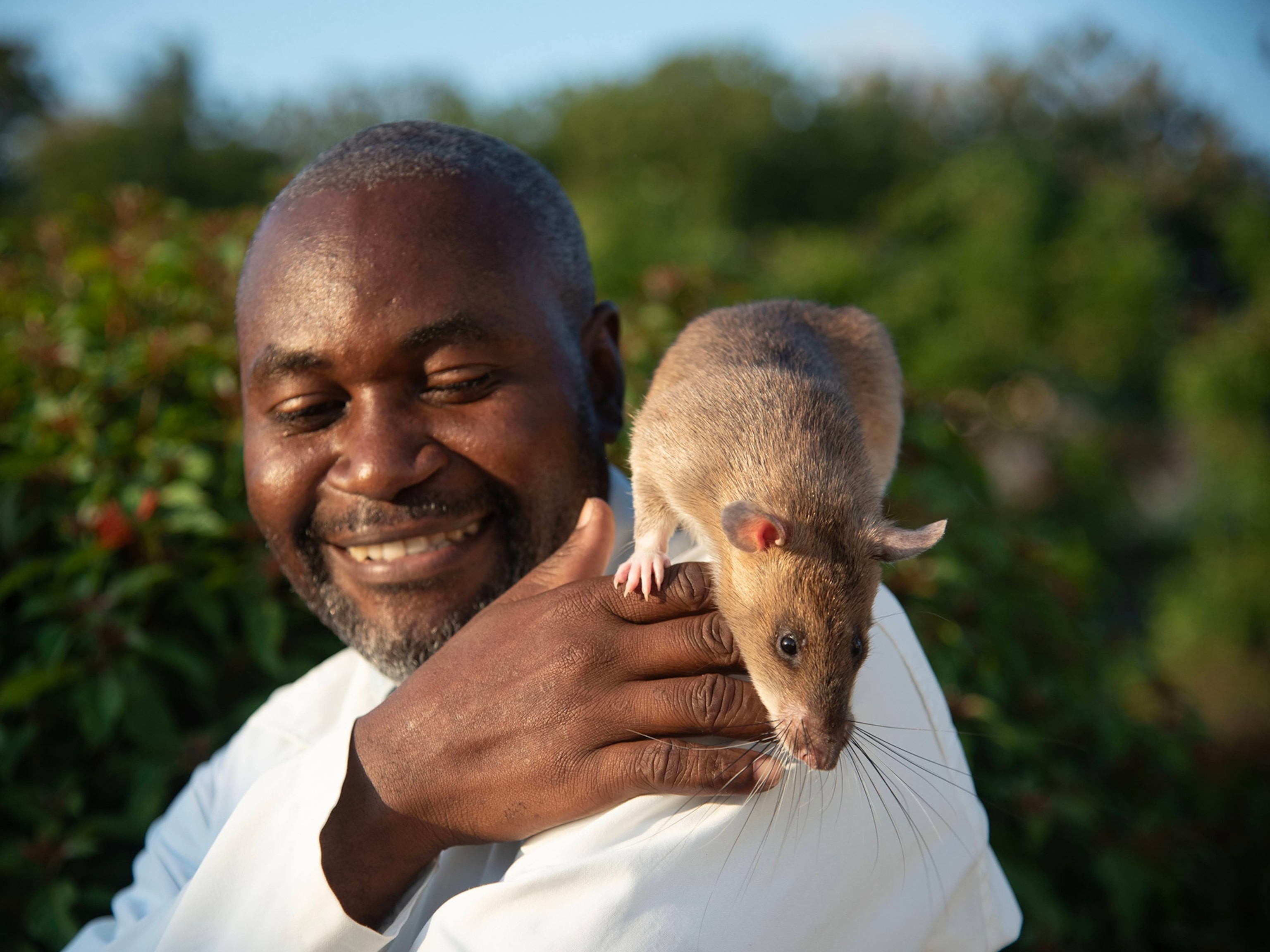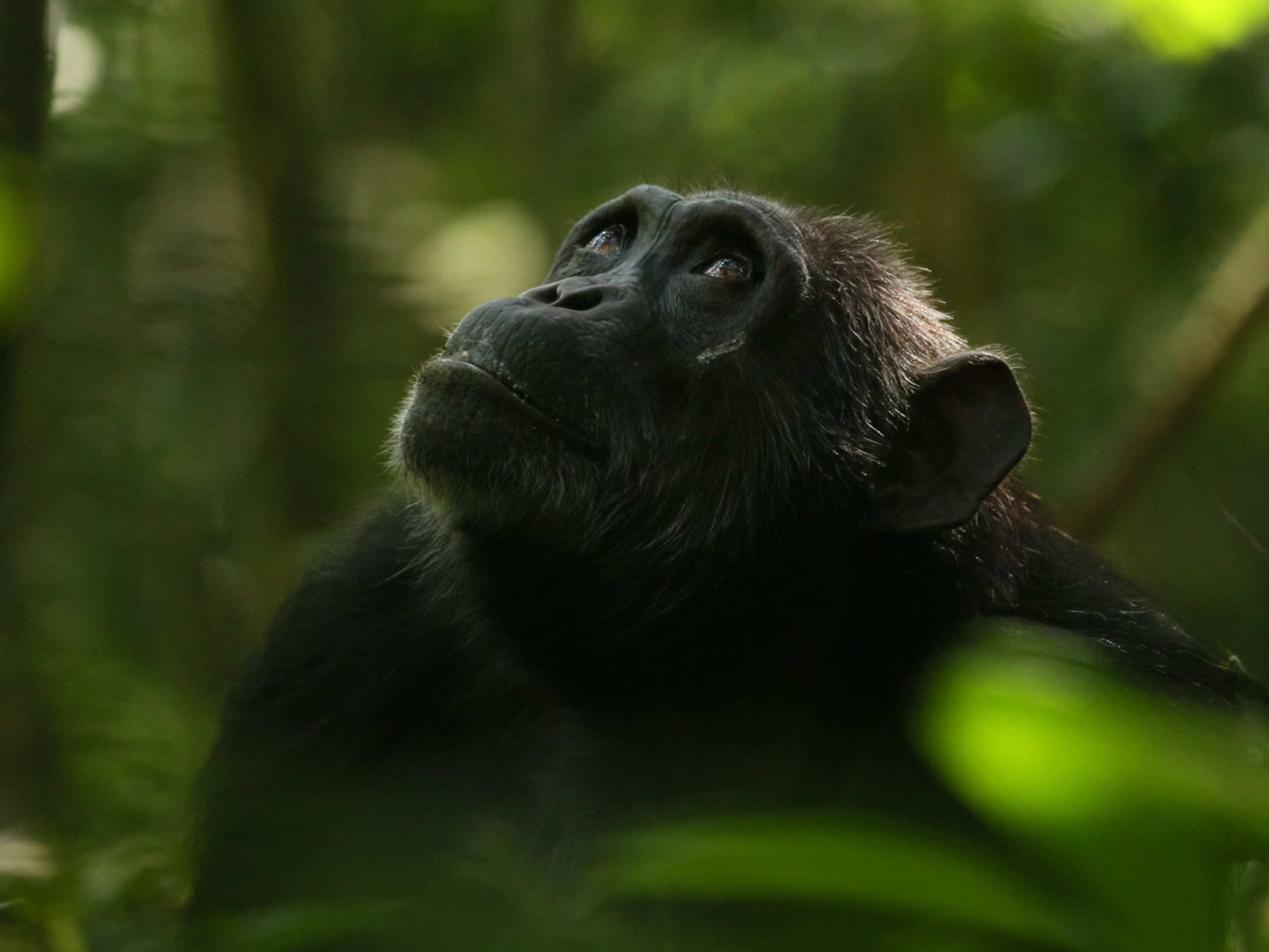Government Research Chimps Set to Retire
The National Institutes of Health plans to send its last 50 biomedical research chimps to a sanctuary in Louisiana.
The last of the government’s research chimpanzees will soon be retiring to 200 acres of a wooded sanctuary in Louisiana.
National Institutes of Health director Francis Collins made the announcement in an email to agency administrators, Nature reported.
These 50 chimps stayed behind in government research facilities after the NIH sent several hundred of their compatriots to retirement sanctuaries in 2013. They were kept on in case of a public health emergency that required research.
This past June, the U.S. Fish and Wildlife Service categorized captive chimps as an endangered species, a status their wild counterparts already had. That status meant scientists who planned to conduct experiments that could “harm or injure them” would require a permit.
The chimps will be sent to Chimp Haven, a federally funded sanctuary for retired government research chimps in Keithville, Louisiana. Cathy Willis Spraetz, Chimp Haven president and CEO, said the first wave of 25 lab chimps could arrive as soon as December, and the facility would be ready for the other 25 by early 2016.
As of September 2014, the facility housed 208 chimps.
Last year, National Geographic visited Chimp Haven and wrote about the pre-retirement lives of research chimps:
Some had never seen the sky, or set foot on anything other than concrete; a few had been socially isolated for most of their lives.
Many were infected with HIV or hepatitis viruses, and had endured multiple liver biopsies. Those females who had been in the NIH's breeding program...had all of their babies taken from their arms.
At Chimp Haven, the animals socialize with each other and have begun to trust humans. “We don’t know all of the details of their personal histories,” cofounder Amy Fultz told National Geographic. “And we don’t know all that they endured. But for many of them it was a harsh life, and when they first came here, their attitude was, ‘people suck.’ That they trust us as much as they do now is phenomenal to me. They are incredibly forgiving.”
The chimps have names such as Sara and Rita, and both parents and youngsters live in the sanctuary.
These young chimps were born in the sanctuary, but unexpectedly, since the male chimps have all had vasectomies. That's why, for the past two years, the females' frozen bananas have been laced with birth control. Chimp Haven didn't intend to breed more chimps in captivity. Instead, these are meant to be among the last of the chimpanzees owned by the U.S. government.
“It closes a chapter on something that, years from now, we’ll look back on with a certain degree of horror,” said Anna Gibson, a vice president at the Jane Goodall Institute, a welfare and conservation nonprofit that has long advocated for the end of medical research on chimps.
In terms of conservation of an endangered species, it’s also a win, she said. “No longer is there an incentive for someone to irresponsibly breed or attempt to capture chimpanzees for this [biomedical research] purpose.”
But some scientists fear the decision could limit the possibility of using chimps for conservation research, such as developing an ebola vaccine for wild chimps, according to the article in Nature.
There are still about 900 privately owned chimps in captivity in the U.S. that are subject to medical testing, used for entertainment (primarily in circuses), or kept as pets.
This story was produced by National Geographic’s Special Investigations Unit, which focuses on wildlife crime and is made possible by grants from the BAND Foundation and the Woodtiger Fund. Read more stories from the SIU on Wildlife Watch. Send tips, feedback, and story ideas to ngwildlife@natgeo.com.
